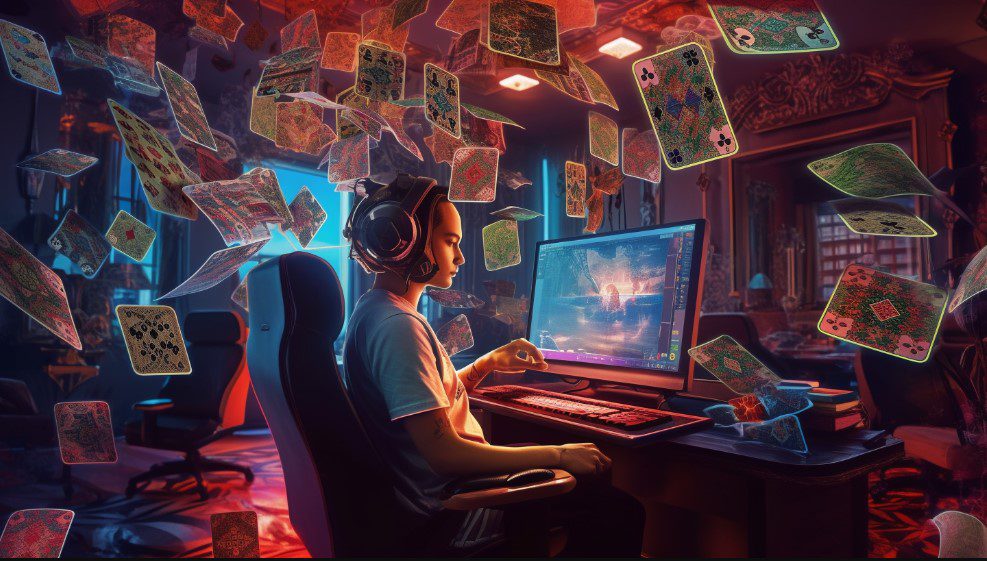Online slot gacor has become a cornerstone of modern entertainment, blending technology, culture, and community. Its evolution from simple beginnings to a multi-billion-dollar industry reflects broader changes in society and technology. This article explores the journey of online gaming, its impact, and its future potential.
From Humble Beginnings to Global Phenomenon
The roots of online gaming can be traced back to the 1970s and 1980s, with text-based games like “MUD” (Multi-User Dungeon) that allowed multiple players to interact in a virtual environment. As internet access expanded, so did the complexity and reach of games. By the 1990s, titles like “Quake” and “Ultima Online” introduced players to immersive worlds and the concept of multiplayer gaming over the internet, laying the foundation for the online gaming explosion.
Diverse Genres and Experiences
Today’s online gaming landscape is vast and varied, catering to an extensive range of tastes and preferences. Whether it’s the strategic depth of real-time strategy games like “StarCraft,” the expansive worlds of MMORPGs like “Final Fantasy XIV,” or the competitive edge of battle royale games like “Fortnite,” there is something for everyone. This diversity has helped broaden the appeal of gaming, attracting a more diverse player base and making gaming a mainstream pastime.
Community and Social Interaction
One of the most significant aspects of online gaming is its role in fostering social interaction. Unlike single-player games, online games offer a communal experience where players can collaborate, compete, and communicate. This has led to the formation of vibrant online communities, where players share tips, strategies, and stories. These communities often transcend the games themselves, creating lifelong friendships and even professional opportunities in areas like streaming and content creation.
The Rise of Esports and Professional Gaming
Esports, or competitive gaming, has transformed the gaming landscape, turning skilled players into professional athletes. Games like “League of Legends,” “Dota 2,” and “Valorant” host international tournaments with substantial prize pools, drawing millions of spectators both online and at live events. The esports phenomenon has not only elevated gaming to a respected competitive discipline but also created new career paths and industries around coaching, analysis, and broadcasting.
Technological Advancements and Future Trends
The rapid advancement of technology has been a driving force behind the evolution of online gaming. Improvements in graphics, processing power, and internet speeds have enabled developers to create more detailed and complex virtual worlds. Virtual reality (VR) and augmented reality (AR) are at the forefront of gaming innovation, promising to deliver even more immersive experiences. Additionally, the advent of cloud gaming services is making high-quality gaming accessible to a broader audience by removing the need for expensive hardware.
Economic Impact and Cultural Influence
Online gaming is a significant economic force, generating substantial revenue through game sales, in-game purchases, subscriptions, and advertising. It has also become a cultural touchstone, influencing fashion, music, and film. Popular games often serve as cultural landmarks, with their characters, narratives, and aesthetics becoming part of the broader cultural conversation.
Challenges and Ethical Considerations
Despite its many benefits, the online gaming industry faces several challenges. Concerns about gaming addiction, exposure to harmful content, and the ethical implications of in-game monetization practices are ongoing issues. The industry must navigate these challenges responsibly, balancing the drive for innovation and profit with the need to protect players, particularly younger audiences.
The Future of Online Gaming
The future of online gaming is poised to be even more exciting and expansive. As technology continues to evolve, new forms of gaming will emerge, offering richer and more diverse experiences. The integration of artificial intelligence (AI) and machine learning could lead to more personalized and dynamic game worlds. The concept of the metaverse—a collective virtual space that integrates gaming, social media, and commerce—promises to redefine how we interact in digital environments.
Conclusion
Online gaming is more than just a form of entertainment; it’s a rapidly evolving ecosystem that reflects broader technological and cultural trends. As it continues to grow and innovate, online gaming will undoubtedly play a key role in shaping the future of digital interaction, creativity, and community. Whether you’re a casual player, a competitive gamer, or simply interested in digital culture, the world of online gaming offers endless possibilities for exploration and engagement.

